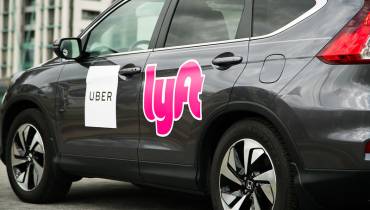Cost of Living Driving Side Hustles as People Seek Out Extra Cash

With everyday essentials such as food rising in cost by as much as 20%, many people are struggling to make ends meet on just one paycheck. It comes as no surprise, therefore, that the number of people turning to side hustles to supplement their incomes is rising.
However, the stress entrepreneurs are experiencing when starting their side hustles is affecting their mental health. A side hustle can take many forms, but whether reselling clothes, working as a courier, or tutoring online, a second job requires a person to use their own free time to start and run a business, which can be stressful.
Money.co.uk, a UK comparison website for financial services, investigated how many Brits have turned to side hustles, and the reasons why by surveying over 2,000 Brits about side jobs. The survey revealed important insights including how many workers wish to start a side hustle, and the stress levels of those already running one.
Key Study Findings
It turns out the search for financial stability and the ability to be one’s own boss, drives UK workers in search of a side job.
Almost a third (31%) of workers already work two jobs, and over four in ten (42%) British workers want to take up a side hustle, compared to just 28% who are not considering the opportunity.
- Almost a third (31%) of workers already have a side hustle
- Over four in ten (42%) British workers are considering starting a side
job - Majority of workers with a second job started it for the extra cash
Inflation Driving People to Start Side Hustles
The influence of the cost of living crisis on peoples’ attitudes to work is not to be understated. As inflation drives up the cost of everyday necessities, Brits’ are searching for ways to supplement their incomes.
Almost a quarter (24%) of respondents are not satisfied by their main jobs, so have turned to a side hustle to fulfil their passion.
One in five (18%) respondents said that they hope of one day being able to leave their main job in favor of the business they would start.
The potential to make more money was overwhelmingly given as respondents' main motivator for taking on, or considering, a side job.
When asked why they would start a side hustle, Brits had varying responses. Seven in ten (71%) of those asked gave “making extra cash” as one of their top reasons for starting (or wanting to start) a side hustle.
Why did / would you start your side hustle, if for any reason at all? (Tick all that apply)
Reason
Percentage of respondents
To make more money
71%
It was/is my passion
24%
So I could/can eventually leave my main job
18%
I started in lockdown
8%
No particular reason
2%
Meanwhile, more than half of those with a side job say this venture causes them stress.
Majority of Those with Side Hustles Say It Affects their Mental Health
Over half (net 51%) of those with side jobs stated that their side hustle causes them stress, with 13% responding that they face “a lot” of stress.
Pressure from the focus of turning their business profitable, and the possible dependence on this in order to supplement their main income, is likely putting stress on workers with a side hustle.
Does your side hustle cause you stress?
Answer
Percentage of respondents
Yes, a lot of stress
13%
Yes, a little bit of stress
37%
No, it doesn’t cause me that much stress
28%
No, it doesn’t cause me any stress at all
21%
Considerations for Starting a Side Hustle
Aside from considering the stress that comes with starting and running a business,
Cameron Jaques, business expert at money.co.uk business loans, shared other considerations and tips when starting your own business:
“If you are thinking about topping up your income by starting your own side hustle, here are our top considerations to take into account:
1. Setting up your business: There are three main structures your business can take: sole trader, partnership, or limited company; and each route has different tax implications. For instance, a limited company is an entity legally separate from its owners, and is therefore required to submit yearly tax accounts and pay corporation tax. Determine which is the right model for your company and your tax obligation.
2. Consider your tax payments: If your business is earning less than £1,000 a year then you don’t need to register with the HMRC – this is perfect if you want to begin testing the waters by starting small. This £1,000 applies to income not profit, therefore you are legally required to register that you have earned this much, even if your expenses were high.
3 Breaking even: Whichever business you decide to start, it’s important to know how to calculate your break-even point. You can do this with one of the handy online break-even calculators.”
“With over seven in ten workers saying they started their side gig as a way to make more money, it’s clear that people are giving up their free time in the hopes of financial stability,” Jaques says.






![81% of Brits Plan to Support Small Businesses this Christmas [Study]](/sites/default/files/styles/video_thumbnail_bottom/public/woman-shopping-small-business.jpeg?itok=SK3JqPQ_)












